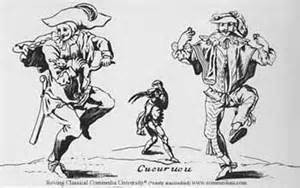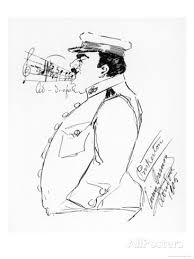The inconceivable advocacy of a large percentage of Americans for Donald Trump to be the Republican Presidential nominee in 2016 began to make a little more sense upon reading the New York Times critic’s ode to political correctness in his September 25th review of the Metropolitan Opera’s seasonal premiere of Puccini’s Turandot.
The writer gave over much of his concluding paragraphs to yet another attempt to impose political correctness on the arts, a concept that turns so many against what often happens in both politics and television today. His dismay at the actions of Ping, Pang, and Pong, likening them to representatives of improper “Orientalism”, completely ignores the fact that the three are commedia figures, traditional in Italian opera and conceived by Puccini and his librettists as relief from the basically grim story. If they were not made up as Chinese, they would make no sense at all, and they actually are more sympathetic characters than two of the three principals. Perhaps Turandot should wear a simple dress, but she would hardly then be the Princess of ancient China. The writer brings up approvingly the cancellation of The Mikado in Seattle and New York. As Norman Lebrecht wrote in Slipped Disc a few days ago, The Mikado is a satire on the British upper class, understood at the time and even now and had nothing to do with Japan or Japanese traditions.
 If Ping, Pang and Pong are offensive to the Chinese, why was a new and very grand production of Turandot created for the opening of the Olympics in China? The Chinese government, which put up the money to build the production, is certainly not in the business of making fun either of its country’s history or its tradition. And what does the Times headline “The darkest depths of the soul” mean? If anyone wants the dark depths of the soul in opera, go to Rigoletto, Wozzeck, or even Puccini’s Il tabarro.
If Ping, Pang and Pong are offensive to the Chinese, why was a new and very grand production of Turandot created for the opening of the Olympics in China? The Chinese government, which put up the money to build the production, is certainly not in the business of making fun either of its country’s history or its tradition. And what does the Times headline “The darkest depths of the soul” mean? If anyone wants the dark depths of the soul in opera, go to Rigoletto, Wozzeck, or even Puccini’s Il tabarro.
We seem to be reaching a point where nothing onstage that could conceivably annoy anyone can be exhibited. Many operas were composed in the nineteenth century located in what was then called “exotic” locations. Are we to discard The Pearl Fishers and Lakme just because Bizet and Delibes set love stories in a fanciful Ceylon and India? Must we cancel upcoming Carmens because gypsies are annoyed at their treatment in Bizet’s opera? Spain in 1875 was just as “exotic” to the French as India or Ceylon.
 The logical outcome of this doctrine of political correctness in opera makes about as much sense as a picket line outside the next production of Madama Butterfly manned by the officers of the U.S. Navy. Arguably, they really do have something to complain about.
The logical outcome of this doctrine of political correctness in opera makes about as much sense as a picket line outside the next production of Madama Butterfly manned by the officers of the U.S. Navy. Arguably, they really do have something to complain about.

Right on!
As usual, the pundits don’t know much about the subject–not that that ever stops them.
and, as usual, no fact checkers in sight..
Speight, I love your sense of humor and your insights. I even love your outrage at the over-the-top political correctness that would shut down a production of The Mikado. Not having read the particular review to which you refer, I cannot begin to comment on it. And I agree, if we take that perilous path of timidity about offending…then where do we draw the line? What’s next? Porgy and Bess? (It could offend African-Americans) West Side Story? (Puerto Ricans…) Carmen? (the Roma people)..Let’s loosen up, folks. It’s only a show.
I once contacted you about this when the Seattle Gilbert & Sullivan Society had such a PC attack over their MIKADO last year. I predicted that Turandot and Madama Butterfly would be next. And so it has come to pass.
The barbarians are at the gates.
You are certainly correct that if we start mining works from the past we will find something to offend everywhere. (No nineteenth- or early twentieth-century work will survive close examination because racism and sexism were woven into life all over the world at that time.) Americans seem to be blind to history; we’ve lost the ability to see that other times and other societies had different values. The massive American indifference to history has made Americans rigid and intolerant, on the left and on the right. Instead of learning from art, as we did until fairly recently, we now sit in judgment on it and find it lacking. Eventually all that will be left is contemporary work that neither interests nor offends.
This is crazy, crazy stuff. The World is already saturated with PC, but you somehow expect something better out of the Times, which for generations has demonstrated its appreciation for opera and generally sophisticated criticism for operatic performances. It’s amazing that the Times, of all publications, would assign someone to cover such a well-known opera without the faintest idea what Puccini had in mind. Good for you, Speight, for calling them out.
Summary: White man doesn’t understand racism.
We Nibelungs are mortally offended by our racist treatment in the Ring–to say we lust after nubile submarine maidens, and if we can’t get them, settle for power and wealth is–.
Actually, sounds pretty accurate. Never mind.